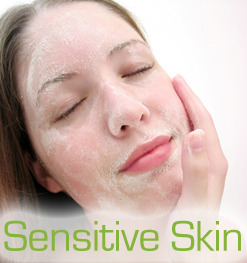When you apply an essential oil ‘neat’, you apply it directly on to your skin, without dilution. Undiluted application of pure essential oils is termed as neat application and leads to several problems, including skin disorders. Though not many people know this, it can result in life-long sensitization to that oil, making one develop skin problems the moment he or she comes in contact with the oil. However, this is a debatable topic as a few aromatherapists, even companies, profess that there is no harm in applying Lavender and Tea Tree oil in a neat way. This is not true and this article will explain why.
The sin of sensitization: Sensitization of skin basically means contact dermatitis of skin. Application of pure essential oils without dilution results in what is called sensitization – severe rash or itchy skin that appears every time your skin comes in contact with that particular oil. For instance, if you apply Lavender oil undiluted, you will develop sensitization every time you come in contact with the oil, even after 20 or 30 years. The proof for this is mentioned by Marge Clark in her famous book, ‘Essential Oils and Aromatics’. To avoid any such skin problems, ALWAYS use essential oils only after dilution. This is a must at least for the topical dilution of essential oils. Because, permanent sensitization can be a curse for life.

How to use essential oils: Though essential oils are natural substances, they can be too tough to handle. That is, overuse or abuse of them can result in problems that maybe otherwise caused by abuse of medicines. This is why it is important to treat them with respect and use them like medicines. Use caution every time you come in contact with an essential oil and ensure that you dilute your oil before topical application. With regard to essential oils, always remember that less is more. Even with minimum drops, you can reap maximum benefit. Similarly, avoid using essential oils that are hazardous or have the potential to cause skin irritation. These include: Bay Laurel, Benzoin, Cinnamon, Clove, Fennel, Oregano, Fir Needle, Parsley, Needle, Sage, Tagetes, Thyme and Spruce. Avoid oils like Anise, Bay Laurel, Benzoin, Fennel, Cassia, Catnip, Cinnamon, Citronella, Clove, Peru Balsam, Pine, Star Anise, Tagetes, Melissa, Oakmoss and others that cause sensitization.
Diluting essential oils – methods: A simple and easiest way to dilute essential oils is to add 12 drops of pure oils to 1 fl. Oz (30 ml) of carrier oil. This means a 2% dilution and involves no complex measurements. Though the mixture is not of appropriate measurements, this 2% dilution is enough to ensure that pure essential oils are blended well with carrier oils and do not cause harm on topical application.
Raindrop Therapy (pure application) is said to advocate use of pure oils. Avoid the therapy or check well with aromatherapists before going for any such undiluted topical application of oils.